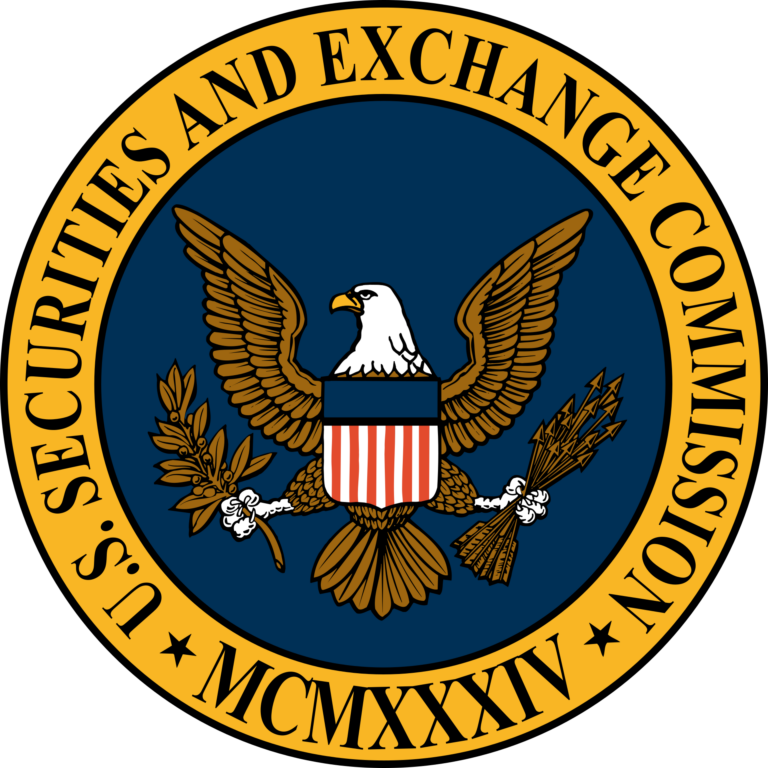All content tagged with: Systemic Oppression
Filter
Post List
In Fear of Black Revolutionary Contagion and Insurrection: Foucault, Galtung, and the Genesis of Racialized Structural Violence in American Foreign Policy and Immigration Law
This article investigates the power relation between the political anatomy of the Black soul and non-somatic expressions of white supremacy-based violence. Utilizing Michel Foucault’s theories of discipline and punishment in conjunction with Johan Galtung’s theory of structural violence, I posit that the exercise of state-sanctioned discipline and punishment in furtherance of white supremacy constitutes racialized structural violence. Thus, this article contributes to the current public discourse concerning the role white supremacy plays in America by establishing a new construct that can be used to dissect the nature of racial oppression. Furthermore, this article analyzes the genesis and construction of racialized structural violence in American foreign policy and immigration law using America’s response to the Haitian Revolution as a case study. When combined, akin to discipline, American foreign policy and immigration law is a white supremacy-oriented, complex bundle of power technologies designed to evoke docility from Black and Brown nations. Both allow America to engage in dissociative white supremacy. Over time, America’s “right” and power to discipline and punish Black and Brown nations has been normalized as a rational function of our global society.When Critical Race Theory Enters the Law & Technology Frame
Michigan Technology Law Review is proud to partner with our peers to publish this essay by Professor Jessica Eaglin on the intertwining social construction of race, law and technology. This piece highlights how the approach to use technology as precise tools for criminal administration or objective solutions to societal issues often fails to consider how laws and technologies are created in our racialized society. If we do not consider how race and technology are co-productive, we will fail to reach substantive justice and instead reinforce existing racial hierarchies legitimated by laws.Medical Violence, Obstetric Racism, and the Limits of Informed Consent for Black Women
This Essay critically examines how medicine actively engages in the reproductive subordination of Black women. In obstetrics, particularly, Black women must contend with both gender and race subordination. Early American gynecology treated Black women as expendable clinical material for its institutional needs. This medical violence was animated by biological racism and the legal and economic exigencies of the antebellum era. Medical racism continues to animate Black women’s navigation of and their dehumanization within obstetrics. Today, the racial disparities in cesarean sections illustrate that Black women are simultaneously overmedicalized and medically neglected—an extension of historical medical practices rooted in the logic of biological race. Though the principle of informed consent traditionally protects the rights of autonomy, bodily integrity, and well-being, medicine nevertheless routinely subjects Black women to medically unnecessary procedures. This Essay adopts the framework of obstetric racism to analyze Black women’s overmedicalization as a site of reproductive subordination. It thus offers a critical interdisciplinary and intersectional lens to broader conversations on race in reproduction and maternal health.Lawyers as Social Engineers: How Lawyers Should Use Their Social Capital to Achieve Economic Justice
The Michigan Business & Entrepreneurial Law Review (MBELR) has always strived to provide a platform for legal scholars, professionals, and students to publish business-related legal scholarship. Yet, little legal business scholarship focusing on the Black business community exists, despite the extraordinary impact that Black communities have in the U.S. business landscape. In a year of revolutionary social change, we are excited to feature in this special issue the work of Professor Dana Thompson, a Michigan Law alumna, in an effort to remedy this gap. Professor Thompson’s career, professional values, and day-to-day work demonstrate genuine, commanding, and inspiring commitment to social justice and community-based organizations.Excerpt of Law and Anti-Blackness
Professor Michele Goodwin’s essay here (and the article from which it came, to be published in full in our Winter issue) explicitly identifies the development of American law as a project of cementing racial caste. This piece is a call for conversation and asks us all to consider: “How has the failure to acknowledge and address the carnage and prurience of America’s racial origin story impacted life today?” For 26 volumes, we have attempted to answer that question. In publishing this story in this issue, we are excited to be joined by our peers in that effort.A Fare Share: A Proposed Solution to Address the Racial Disparity in Access to Public Transportation Funding in America
Black American households are up to six times less likely to own a car than white families and are four times more likely to rely on public transportation to meet their daily needs. Despite this, communities of color have seen consistent disinvestment in their transit infrastructure. Four hundred years of continued housing segregation combined with post-recession austerity policies and ongoing pro-automobile bias has exacerbated this disparity. This Note proposes a straightforward legislative tool to begin to combat this inequity. The proposed legislation would require that urbanized areas spend their public transit dollars according to the population density of the communities a given project would serve, create reporting requirements related to the racial and economic impact of transit projects, and establish a private right of action. In proposing this legislation, this Note evaluates the state of civil rights litigation as it pertains to transportation racism and draws lessons from other areas such as environmental law in order to put forth a simple solution that would have tangible effects across the country in both the short and long term.Man’s Best Friend? How Dogs Have Been Used to Oppress African Americans
The use of dogs as tools of oppression against African Americans has its roots in slavery and persists today in everyday life and police interactions. Due to such harmful practices, African Americans are not only disproportionately terrorized by officers with dogs, but they are also subject to instances of misplaced sympathy, illsuited laws, and social exclusion in their communities. Whether extreme and violent or subtle and pervasive, the use of dogs in oppressive acts is a critical layer of racial bias in the United States that has consistently built injustices that impede social and legal progress. By recognizing this pattern and committing to an intentional effort to end the devaluation of African Americans, the United States can begin to address the trailing pawprints of its racial inequities.
The Role of Transactional Law Clinics in Promoting Social Justice
By Leah Duncan Associate Editor, Vol. 24 Access to justice is arguably one of the biggest problems facing the legal profession.[1] As Brian Price, director of Harvard Law School’s Transactional Law Clinics, puts it, “[w]hen people try to navigate the legal world without representation, deterred by the cost, they are at a structural disadvantage compared to those who know the rules of the game.”[2] In recent decades, law clinics have played a significant role in addressing the gap in services to clients who lack the means to afford high legal fees. During the early years of legal clinics, most law schools legal clinic offerings focused on civil and criminal litigation. But over the past few years, there has been an increasing instance of transactional clinics which focus on providing legal aid to low-income entrepreneurs, small businesses, and other community-based organizations.[3] As a tool to solve the access to justice crisis, community organizers use various strategies to empower community members to direct their own future. While civil and criminal litigation clinics have secured their space in the access to justice toolbox, professors, scholars, and students alike have begun to engage in serious dialogue about what role, if any, transactional law clinics can play. Transactional law clinics primarily focus on assisting small businesses and entrepreneurs in business formation, contract drafting and other types of transactions. These transactional law clinics, like the University of Michigan Law Entrepreneurship Clinic, point to the value of free and reduced fee transactional services for small businesses and low-income entrepreneurs who may not otherwise receive legal aid. To this end, this article explores justifications for the inclusion of transactional clinics in the fight for access to justice and provides insight to strategies for its inclusion.White Caller Crime: Racialized Police Communication and Existing While Black
Over the past year, reports to the police about Black persons engaged in innocuous behaviors have bombarded the American consciousness. What do we make of them? And, equally important, what are the consequences of such reports? This Article is the first to argue that the recent spike in calls to the police against Black persons who are simply existing must be understood as a systematic phenomenon which it dubs racialized police communication. The label captures two related practices. First, racially motivated police reporting—calls, complaints, or reports made when Black persons are engaged in behavior that would not have been read as suspicious, or otherwise worthy of police involvement had they been White. Second, racially weaponized police reporting—calls, complaints, or reports made against Blacks in an effort to capitalize on law enforcement mistreatment of Black persons, or harm the victim because of their race.
Arbitrary Paternalism and the SEC Accredited-Investor Standard
By Leah Duncan Associate Editor, Vol. 24 In developing the current accredited investor requirements to balance competing considerations of investor protection and capital formation, the Securities and Exchange Commission has used proxies that give rise to discrimination against communities of color.[1] While this problem is on its face economic in nature, I will approach it through the lens of race and ethnicity to illuminate the ways in which the accredited investor requirement excludes communities of color from avenues to wealth. Pursuant to the Securities Act of 1933, the SEC requires that a company or private fund either register the sale or offering of their securities or be exempted based on a safe harbor regulation. Section 4(a)(2) of the Act provides an exemption for private sales which are further governed by Regulation D requirements that dictate purchasers must be “accredited investors.” So, what does it mean to be an accredited investor? The SEC defines an accredited investor as anyone who “has a net worth over $1 million alone or together with a spouse” or someone who “has earned income that exceeded $200,000 or $300,000 together with a spouse in each of the prior two years, and reasonably expects the same for the current year.”[2] In order for a person to invest in a private security offering, they must comply with at least one of these requirements. The goals of these requirements include protection of investors and the facilitation of capital formation.[3] The SEC has had to grapple with how to balance these two aims. Over-protection of investors could make it more burdensome for some investors to participate in the capital markets. While too much focus on facilitating capital formation may leave investors prey to heightened risk of financial harm. With these concerns in mind, the SEC has decided that income and net-worth “serve as proxies for financial experience, sophistication, and adequate bargaining power.”[4]

